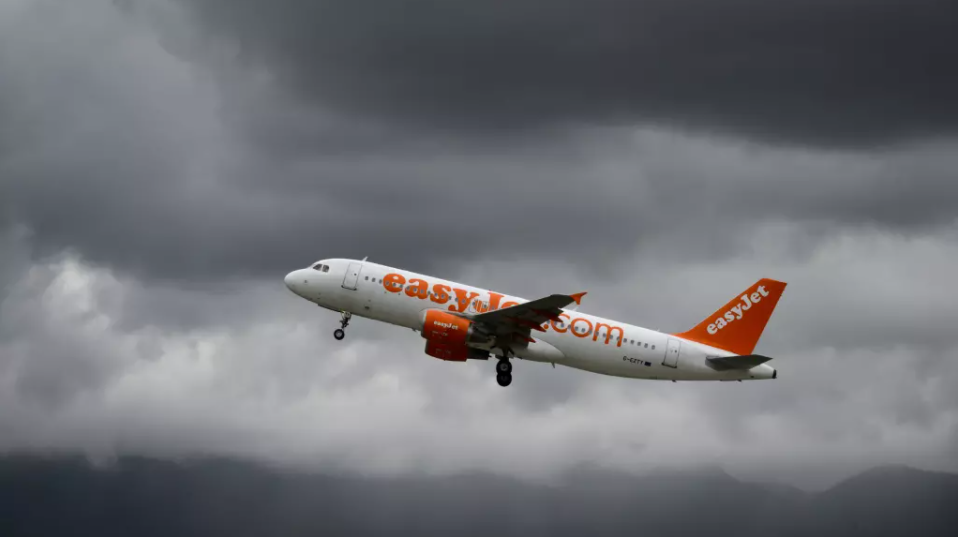European aviation needs bigger mergers than easyJet-Wizz Air
The news of Wizz Air's rejected bid for easyJet has refocused attention on European airline consolidation and the structure of the European market.
Ryanair has taken over from Lufthansa Group as the intra-Europe leader by seats and made the biggest gain in seat share during the pandemic. Aeroflot, Turkish Airlines, Wizz Air and Pegasus have also gained seat share. Lufthansa Group and easyJet have lost share, while Air France-KLM's share is flat.
Comparison with the structure of the North American market is informative. The intra-Europe market is similar in size to intra-North America's in terms of seat capacity, but far more fragmented. The 87% share of North America's top seven equals Europe's top 25.
This report suggests a hypothetical series of combinations among Europe's top 25 that would roughly replicate the seat shares held by North America's top seven. A combined easyJet/Wizz Air, were it ever to happen, would be number two intra-Europe, but its seat share would not be top four in North America.
TO READ ON, VISIT: European aviation needs bigger mergers than easyJet-Wizz Air

American Airlines puts unconventional partnerships to the test
The decision by American Airlines and GOL to deepen their partnership is hardly surprising, and more of an evolution of their relationship as the chess pieces in Latin America are placed in position.
After being caught off guard when Delta forged a relationship with LATAM Airlines Group in 2019, American is now solidifying its position in Latin America, and is willing to pay to maintain its strength in the region - evidenced by its decision to invest in both GOL and the ultra-low cost carrier JetSMART.
The move reflects American's recent decisions to forge what could be deemed unconventional partnerships, which in part have resulted from a certain level of necessity.
But this could also be a scenario where, ultimately, necessity is indeed the mother of invention.
TO READ ON, VISIT: American Airlines puts unconventional partnerships to the test
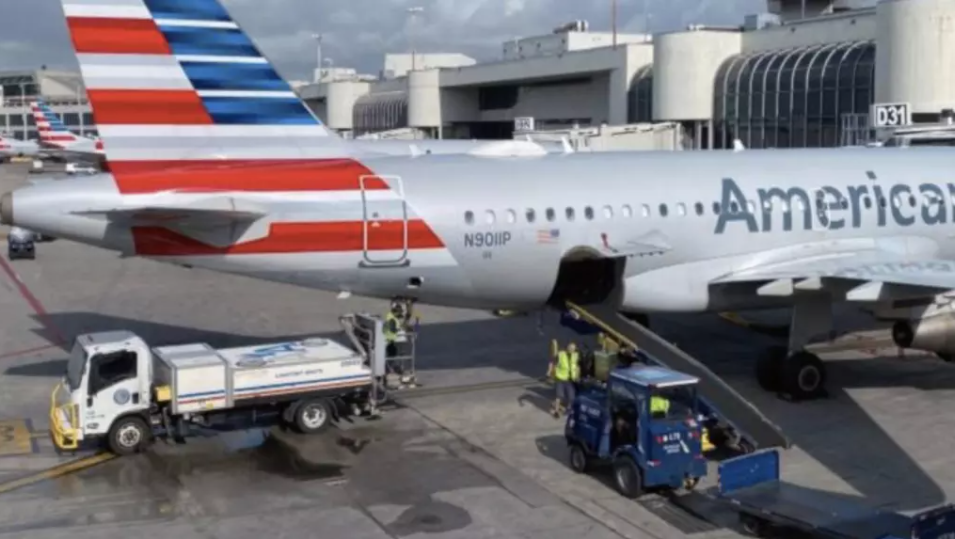
European aviation: capacity and traffic recoveries on a plateau
Europe's aviation recovery remains on a plateau, with no significant change in the percentage of 2019 seat numbers or passenger numbers since early Aug-2021.
Total seat numbers in Europe are 34.2% below 2019 levels in the week of 20-Sep-2021, the eighth week in the region of -34% (after three months of a positive trend before that).
Europe remains in fourth place in the regional capacity recovery ranking. Asia Pacific, where seat capacity is down by 40.0% versus 2019, has slipped to the bottom. The Middle East is down by 39.4%, Africa by 32.6%, Latin America by 25.3% and North America by 20.0% this week.
Airport passenger numbers in Europe were down by 41% versus 2019 in the week of 5-Sep-2021, according to the most recently available data from ACI Europe. The traffic recovery is weakest in the UK, in spite of an improving trend. It is stronger in Southern Europe than in northern markets and strongest in non-EU Eastern Europe.
The easing of international travel restrictions by the UK from 4-Oct-2021 and by the US in early Nov-2021 may help to nudge Europe up from its plateau.
TO READ ON, VISIT: European aviation: capacity and traffic recoveries on a plateau

Canada aviation: from laggard to leader in pandemic management
Just a few short weeks ago Canada's aviation sector was eagerly awaiting a reopening plan from the government after months of expressing ire over the government's foot dragging on loosening restrictions enacted at the onset of the COVID-19 pandemic.
Now that Canada is open to all vaccinated travellers and vaccines mandates are becoming widespread, the country has leapfrogged into somewhat of a leadership position in the next phase of the pandemic as variants of the virus continue to emerge.
The government's latest position is now drawing praise from the country's second largest airline, WestJet, which believes that Canada has an opportunity to emerge as one of the safest countries for travel, which obviously bodes well for the country's airlines.
TO READ ON, VISIT: Canada aviation: from laggard to leader in pandemic management
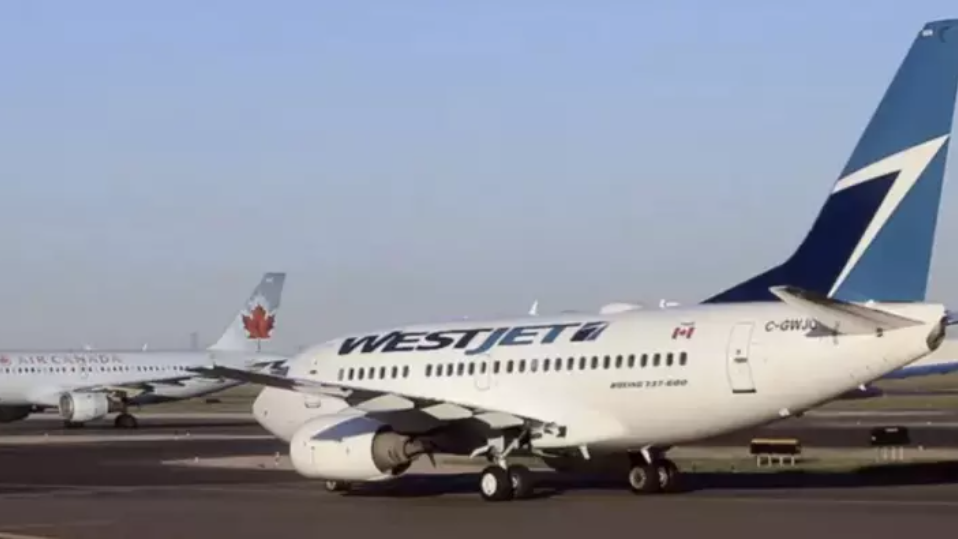
CAPA LIVE: Westjet CEO Ed Sims - JVs, not alliances, in post-COVID plans
WestJet's departing CEO Ed Sims has outlined a comprehensive new international growth strategy for the airline, which includes the establishment of full profit-share joint venture partnerships and explicit, pointed dismissal of joining formal, branded alliances.
The airline is also expanding its trans Atlantic operations, adding Amsterdam with Boeing 787s and both Glasgow and Edinburgh with Boeing 737 MAX aircraft, as well as increasing its cargo activities with the addition of four converted Boeing 737-800BCFs.
Sims told the September edition of CAPA Live that WestJet had been developing not only a well reported transborder partnership with Delta Airlines, but had also been exploring a series of trans Atlantic partnerships, and "eventually" a trans Pacific deal.
"We would be one of the few remaining non-aligned carriers of scale", he said. "We fly 181 aircraft, we have a turnover approaching $6 billion, and yet we're not embedded in one of the alliances. The secret for us is how you can build deeper and fewer partnerships. I think that is indicative of the way the world is going."
TO READ ON, VISIT: CAPA LIVE: Westjet CEO Ed Sims - JVs, not alliances, in post-COVID plans
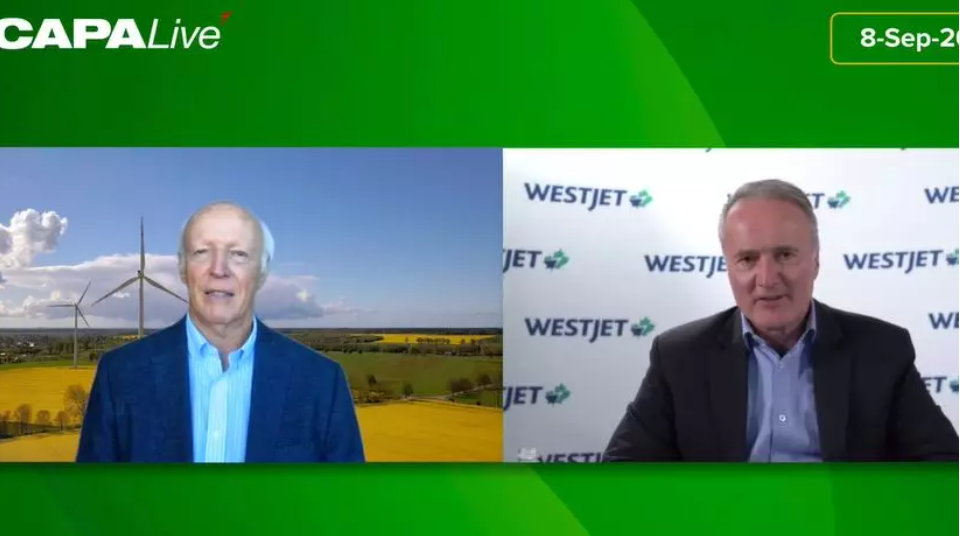
CAPA LIVE: Air New Zealand: consider sustainability like safety
Air New Zealand has encouraged the airline industry to consider sustainability in the same way as it does air safety, in order to prioritise and collectively decarbonise aircraft emissions.
In a wide-ranging discussion at September's CAPA Live event, Air New Zealand's Chief Operational Integrity and Safety Officer, Captain David Morgan, detailed the airline's commitment to decarbonise its operations, and the support it will need from suppliers and infrastructure providers to meet its objectives.
He highlighted the airline's plans to progressively introduce sustainable aviation fuels, its active support for a SAF refining capability in New Zealand, its intention to introduce electric aircraft by 2030, and its determination to reduce waste to landfill by 60 per cent within five years.
TO READ ON, VISIT: CAPA LIVE: Air New Zealand: consider sustainability like safety
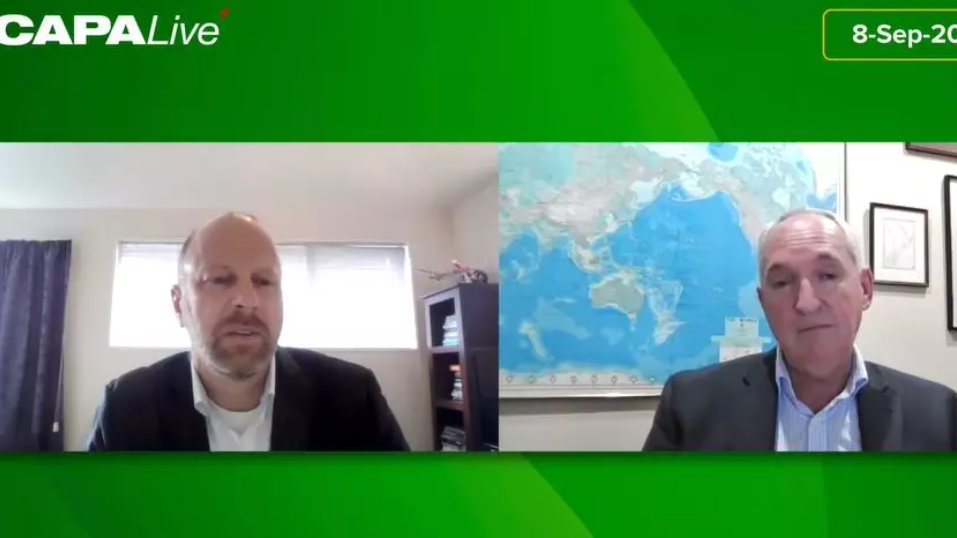
CAPA LIVE: Former Virgin Australia executive heads new US airline startup
Former Virgin Australia Group Executive, and Global Head of Aviation Practice for L.E.K. Consulting, John Thomas, is preparing to launch a short haul airline, Connect Airlines, in the US, adding yet another aviation venture to his lengthy industry C.V.
Mr Thomas told the Sep-2021 CAPA Live event that, subject to regulatory approvals in the US and Canada, Connect Airlines would take off by the end of this year, initially linking the northeast US gateways of Chicago O'Hare and Philadelphia with Billy Bishop Airport in downtown Toronto, Canada, using two De-Havilland Dash 8-400 (Q400) turboprop aircraft.
He also revealed that the airline was targeting "total elimination" of carbon emissions by 2026, and highlighted the work of Los Angeles-based Universal Hydrogen, which is developing a programme to retrofit turboprop aircraft with new hydrogen-electric propulsion systems and is converting a Dash 8-300 as a testbed.
TO READ ON, VISIT: CAPA LIVE: Former Virgin Australia executive heads new US airline startup

US airports are golden cash cows, aren't they?
The Reason Foundation, a US think tank, has long advocated in favour of privatisation generally, including in the air transport sector, in a country in which government - national, regional or local - exercises an inordinate degree of control over transport infrastructure.
In a recent study the foundation is pushing again for major US airports to be leased, pointing to a potential pot of more than USD130 billion that ideally would be used to shore up airport balance sheets, but which could be employed on non-airport infrastructure and other uses where it could be justified.
Those valuations are open to question, though, in an environment in which a global pandemic hasn't finished its business yet, and in which the environment itself is waiting to re-emerge as yet another existential threat to the industry.
And while foreign interest in US airports is strangely high - given that there have been no successful privatisation examples to examine apart from the San Juan deal - ultimately any decision to lease an airport there will have to contend with political interests as well as the value placed on it.
TO READ ON, VISIT: US airports are golden cash cows, aren't they?

Could Sydney Nancy Bird Walton Airport top a Kingsford Smith sale?
Charles Kingsford Smith was Australia's renowned aviator of the 1920s and 1930s - just as Nancy Bird Walton was his female contemporary and counterpart. There was always a friendly but competitive relationship between the two. The friendly part of that connection may be absent in five years' time, when the Western Sydney Airport is scheduled to open.
Meanwhile however, the 'rush' to buy Sydney Airport has settled into a one-horse race with no counterbidder (yet) in sight as the lone runner approaches the finishing tape.
A third bid has been made by the group, and while some institutional investors think there is still some leeway, the Sydney Airport board has cleared the decks for due diligence, and the odds now must be on a sale in 1Q2022 that values the airport at more than AUD30 billion.
The air transport industry remains in a parlous state globally. Although there is optimism for the time being, with capacity levels back between 60% and 80% of what they were in 2019 in different regions, concerns remain about new virus variants and the take-up rate and efficacy of vaccines. There is also a host of other matters, while leisure and business travel remain impacted by quite divergent factors.
One important player yet to emerge is the Australian Competition Commission, but that body is unlikely to exercise any significant influence over the deal, since the consortium members hold only minority shares in other airports and they are not directly competing ones. Nevertheless, the airlines remain concerned.
Surprisingly perhaps, there has been little discussion so far as to what impact the Western Sydney (Nancy Bird Walton) Airport, scheduled to open in 2026, will have on the existing Sydney Kingsford Smith Airport. The scope of that new airport (currently a government project, although the private sector will be invited to participate later) is growing, and there will be an 'airport city' attached to it. There is an argument that it represents the future of aviation in the Sydney area more than Kingsford Smith does, and that it might be a preferred investment target.
TO READ ON, VISIT: Could Sydney Nancy Bird Walton Airport top a Kingsford Smith sale?
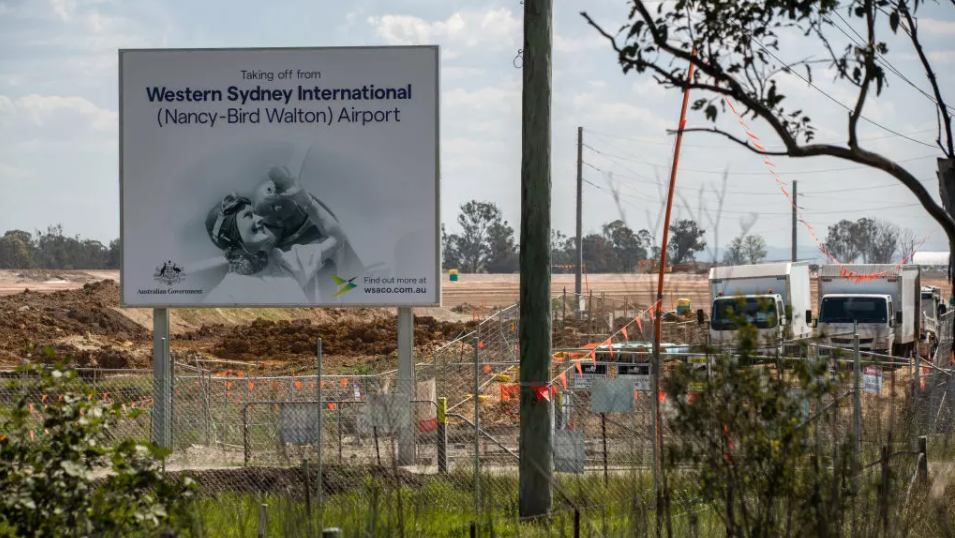
SPECIAL REPORTS: Aviation Sustainability and the Environment
This regular weekly CAPA report features a summary of recent aviation sustainability and environment news, selected from the 300+ news alerts published daily by CAPA. This week's issue includes: easyJet issues recommendations to governments to aid transition towards zero emission flying; Delta Air Lines joins three sustainability coalitions; Budapest Airport to implement sustainable projects worth EUR1.5m as part of STARGATE initiative; Airbus, Air Liquide and VINCI Airports announce plans for distribution of liquid hydrogen from 2030; CAPA chairman emeritus: SAFs 'need incentives from governments'.
TO READ ON, VISIT: SPECIAL REPORTS: Aviation Sustainability and the Environment
